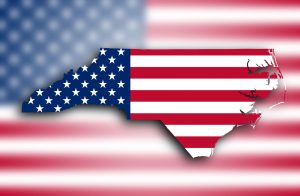Fujifilm Diosynth’s CEO Martin Meeson sees no slowdown in demand for CDMO capacity across all modalities as work begins on a $1.8 billion mammalian cell culture plant in North Carolina.
In March, contract development and manufacturing organization (CDMO) Fujifilm Diosynth Biotechnologies selected Holly Springs, North Carolina as the site of its latest addition to its biomanufacturing network.
Construction began last week on the ¥200 billion ($1.8 billion), and once operational in 2025 it will offer biopharma customers 8 x 20,000 L (160,000 L) of stainless-steel mammalian cell culture facility.

Image: Stock Photo Secrets
The plant is being constructed for capacity scale-up, with the potential to install another 24 bioreactors each with a volume of 20,000 L. Thus if fully equipped, the facility would boast 640,000 L of tank volume, making it the largest single-facility mammalian biologics plant in the world.
“The demand is there,” Martin Meeson, CEO of Fujifilm Diosynth, told BioProcess Insider. “We can see it today, and we can see it continuing to stretch out as we move forward.”
The size and scale of the project is part of a continuous and ambitious capital expenditure program by the CDMO, which in the past 18 months has seen it invest heavily in its network. Last year, ¥100 billion ($900 million) was invested to double capacity at a mammalian plant in Hillerød, Denmark, ten months after the firm acquired the plant from Biogen for $890 million.
And it’s not just antibody manufacturing where investment is being made said Meeson, highlighting the ¥90 billion ($850 million) injected into the CDMO’s network earlier this year, which is set to expand its microbial, gene therapy, and vaccine production capabilities in both the US and UK.
“It’s exciting for me, it’s exciting for the team here to be able to have the ability not just to do one of these things, but to be able to cover them all,” he said. “It’s also very exciting for our partners as well [who] have different and varied pipelines across modalities and scales.”
Meeson continued: “If you look at all the molecules that are dropping into the pipeline at the moment, we see a strong demand as we move forward for large amounts of therapeutic vaccine being required out there. We also see a need for some of the smaller indications as well. And you know we are fully invested in all of those things. I’ve got commercial products in 100 liter vessels in one of my facilities; I have commercial products in multiple 20,000 liter facility vessels in different facilities.”
Recruitment
The North Carolina plant aims to employ 725 staff. With ongoing talent shortages in the industry, we asked Meeson how he hopes to fill these roles.
“One of the reasons one of the reasons we chose to invest here in North Carolina is the very strong talent creation that they’ve got. They’ve got a very good scheme and systems running with the NC Biotech Center, the universities, the Community College. We’ve been part of this community with the facility we have here already for over 20 years, and we were actually part of setting up some of these systems decades ago. We have confidence that we’ll be able to pull the talent we need through those systems.
“And also we’re an attractive industry segment and we’re not just pulling in bio scientists. There are a lot of different trades that come in: there’s a lot of automation, there’s a lot of support and logistics and all the other things that are associated with manufacturing, and I think with the environment we’ve got here, this strong pull that we’ve got by already having some existing presence here in the in the state will allow us to succeed.”
Image: Stock Photo Secrets
